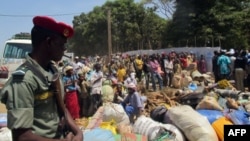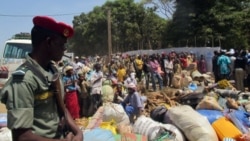Amid almost two years of political turmoil and inter-communal fighting, the United States has stood with the people of the Central African Republic. This year alone, more than $145 million has been provided in humanitarian aid as we joined with international partners to help end the violence, support a national dialogue and pave the way for a political transition culminating in an inclusive and democratically elected government.
To increase our ability to support these efforts, the U.S. embassy in Bangui is resuming operations, 21 months after it closed due to instability and violence. U.S. Secretary of State John Kerry named diplomat David Brown as U.S. charge d'affaires to oversee operations, noting that that much work remains to be done. On arriving in Bangui, Mr. Brown announced an additional $28 million in humanitarian assistance.
With the September 15 transition from the African Union peacekeeping force to one organized by the United Nations, the United States extends its profound thanks to the A.U., the nations that contributed troops and support for the effort, as well as the French and European forces, for their important contributions to the region’s peace and stability. We call on all parties to fully support the U.N. mission in its vital task ahead.
Only a fully inclusive, peaceful, and democratic political transition process can stop the cycle of violence in the Central African Republic. That process must include the voices of all Central Africans, including refugees and internally displaced persons. It must end impunity, hold those who have committed abuses accountable for their actions, and give all citizens access to justice. And it must lead to free and fair elections that give all Central Africans a stake in the future of their country.
The Central African Republic and its people are at a crucial juncture. The United States is determined to help make this moment of opportunity a success.






